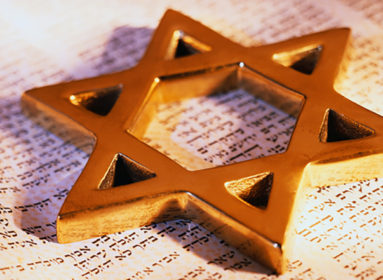
By Irene Frisch
November is here. In recent years, I have celebrated Thanksgiving in West Hartford with my daughter and her family, my son and his family who visit from New York, and some local friends. But in past years, my late husband and I hosted many large Thanksgiving dinners at our home in New Jersey.
I modeled our dinner after a photograph I saw in a magazine depicting a traditional Thanksgiving dinner: a large, beautifully decorated table, a turkey at the center, and many people of all ages seated together. Although I did not celebrate this holiday in my native country, Poland, I instantly fell in love with that photograph because it represented a real American family celebration. Since we did not have a large family to join us for this holiday, I would invite friends who also did not have extensive families. Every year, as November approached, I would scan my address book, carefully choosing people to invite.
What is Thanksgiving? It is a very American holiday, unknown anywhere outside the United States. This day signifies much more to me than a yearly celebration commemorating our country’s early settlers. It marks a day when Americans of all races, religions and origins gather with family and friends around a festive table. It is a day when everyone is simply American.
When I arrived in the United States more than 55 years ago, my knowledge of the language, traditions, and customs of this country was meager. I was fortunate to meet and befriend an elderly lady who, like me, was an émigré from Poland. She had been living in the United States for many years, yet she still tended to mix up her languages. Sometimes, I could not understand her exactly.
It was autumn. I had been in this country for only a few weeks, when my new friend announced: “I am inviting you for Thanksgiving. I will roast a turkey and invite a few more people.” I did not know about Thanksgiving, but I did not wish to admit my ignorance. I was young and pretended to be sophisticated, but I was also intrigued. My friend’s reference to roasting a turkey led me to believe that she would be roasting a Turkish citizen, even though I knew that could not be the case. Happily, at that first Thanksgiving dinner, I was introduced to and enjoyed many unknown dishes – although no cannibalism took place.
A year later, when I was planning to get married, I chose Thanksgiving as the date for the wedding. I assumed it would be a nice way for my few relatives and new friends to gather on this day. My apologies go out today to some friends who attended the wedding. At the time, I did not realize what an imposition it was for them to leave their families on this important day. But I still remember one guest departing early, telling me that she had a turkey in the oven.
In the years since my first Thanksgiving, I have embraced this holiday wholeheartedly, acquiring special recipes, decorations and traditions. Over time, our guest list changed, as some dear relatives and friends died, others moved away, and new family and friends joined our celebration. And every year, I would dust off my porcelain squirrels, who would once again “chase” nuts on our table, and reflect upon the beauty of this holiday and this country. Amidst recession, homelessness, politics, corruption and other unpleasant developments, I took stock of my personal achievements as I set the table.
I had a lot to be thankful for. I married a kind and decent man; we had a comfortable home; and we raised two children who turned out to be decent, sensitive and educated people with family values learned in our home. I would recite a little prayer that I invented many years ago, as a child hiding during the Holocaust, for times of distress. But I would add a prayer in thanks for what I have enjoyed and what I have achieved in America.
Today, I no longer host the meal in my home, but my feelings about this day remain the same: I give thanks, and realize the true meaning of Thanksgiving.
Irene Frisch lives in West Hartford.
Readers are invited to submit original work on a topic of their choosing to Kolot. Submissions should be sent to judiej@jewishledger.com.







 Southern New England Jewish Ledger
Southern New England Jewish Ledger













